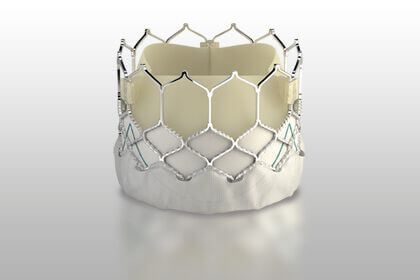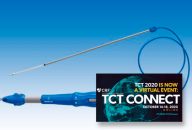The objective of this paper recently published in J Am Coll Cardiol Intv was to compare the outcomes of transcatheter aortic valve replacement (TAVR) with the new Sapien 3 Ultra vs. Sapien 3. Successful implantation was extremely high with both balloon-expandable devices, which also had a very low adverse event rates. However, Sapien Ultra was significantly better…
AHA 2020 | Post-TAVR Anticoagulation in Patients with Atrial Fibrillation
Direct anticoagulant agents were associated with lower long-term mortality in patients with atrial fibrillation discharged after successful transcatheter aortic valve replacement (TAVR) compared with classic vitamin K inhibitors. Optimal anticoagulation in patients with atrial fibrillation (AF) undergoing TAVR is unclear. We are actually just starting to know what the ideal antiplatelet therapy is for patients undergoing…
AHA 2020 | Rise in Early Discharge After TAVR Has the Expected Cost
As hospitalization time after a transcatheter aortic valve replacement (TAVR) is reduced, we are observing a concomitant increase in re-hospitalizations due to conduction disorders. Early discharge is a great step, but it should be noted that conduction disorders can happen beyond 48 hours. A few years ago, pacemaker implantation rates after discharge were about 7%;…
Conscious Versus General Anesthesia in TAVR
Patients with severe aortic stenosis undergoing transcatheter aortic valve replacement (TAVR) can safely undergo the procedure under conscious sedation. Conscious sedation has been adopted in clinical practice as a natural way of simplifying and conducting the procedure in the least invasive way possible. Currently, up to 50% of patients undergo TAVR under conscious sedation, but…
TCT 2020 | Efficacy of Cerebral Protection Device TriGUARD 3 During TAVR
Cerebral protection device TriGUARD 3, designed to cover all supra-aortic vessels during transcatheter aortic valve replacement (TAVR), is safe to use, according to the outcomes of the REFLECT II study. The technical feasibility of the device, which requires transfemoral access, does not seem to have an impact over clinical events. The primary safety endpoint was a VARC-2-defined…
TCT 2020 | Acurate Neo Does Not Meet Non-Inferiority vs. CoreValve Evolut
The self-expanding Acurate Neo (Boston Scientific) did not meet non-inferiority vs. the self-expanding CoreValve Evolut (Medtronic) in the SCOPE 2 study published in Circulation simultaneously and presented at the virtual TCT 2020. These are bad news for the Acurate Neo, that had already failed to show non-inferiority vs. the Sapien 3 in the SCOPE 1…
Death, Stroke, and Hospitalization while Waiting for TAVR
The consequences of deferring transcatheter aortic valve replacement (TAVR) procedures because of the COVID 19 pandemic are piling up. Untreated severe aortic stenosis patients who had been scheduled for TAVR are seeing increased risk of all events, even mortality. According to recent studies published in JAMA, deferring TAVR in patients with symptomatic aortic stenosis is…
Post TAVR ASA Monotherapy Consolidates
This meta-analysis to be published in J Am Cardiol supports the use of aspirin monotherapy (ASA) after transcatheter aortic valve replacement (TAVR). The use of aspirin alone is associated to less bleeding without increased ischemic events such as strokes or mortality. The combined outcomes of four studies, including the recently published POPular TAVI (cohort A),…
Minimalist TAVR to the Max
Transcatheter aortic valve replacement (TAVR) is increasingly being performed under conscious sedation, which is associated with a multi-point benefit (including mortality). This paper, recently published in JACC Intv., shows that general anesthesia is becoming obsolete, although the magnitude the benefit derived from conscious sedation appears to be lower than in previous studies. The aim of…
TAVR as Anti-Inflammatory? An effect few imagined
We never saw it coming, such a pleiotropic effect: who would have though a mechanical device could have such a systemic anti-inflammatory effect? Transcatheter aortic valve replacement (TAVR) does in fact have it. The shear stress aortic stenosis produces activates multiple inflammatory responses mediated by monocytes. This study identified the most important mechanoreceptor, involved in…









